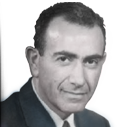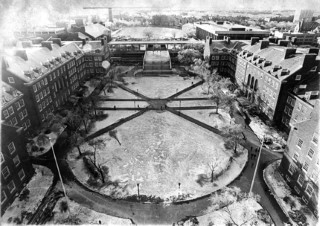I was born in New York in 1916, the middle child. I can’t remember much about school in those early years, except that I couldn’t see over the seat in front of me. I was that small. I liked math and was always interested in reading, but I was never impressed with science fiction, like Buck Rogers.
I had some talent as an artist and my family recognized it. In our financial circumstances, there was never any question about going to a private school. The routine was to live at home and go to free public college. For those of us who lived in Brooklyn, it was Brooklyn College. I started out as an art major. I also took a lot of math because it came easily to me. By the time I had finished my sophomore year, I had decided that I really didn’t want to continue as an art major. For one thing, I was the only boy in classes that were otherwise all female.
I took a physics course and found I liked it very much. In my last two years of college I took almost nothing but physics. By the time I graduated I was a physics major. There were, all told, about ten physics majors in what must have been a population of 10 to 20 thousand students at Brooklyn College. I had no idea of going on to graduate school. Physicists weren’t in demand and no one really understood what they did. Later, when friends would ask my mother “What does your son do?” she'd say, “He’s a physicist.” “What does a physicist do?,” they’d ask. Her reply was, “Oh, he does what Einstein does.”
Brooklyn College: Brooklyn College is a senior college of the City University of New York, located in Brooklyn, New York. Established in 1930, the College had its beginnings as the Downtown Brooklyn branches of Hunter College (then a women's college) and the City College of New York (then a men's college). With the merger of these branches, Brooklyn College became the first public, co-educational liberal arts college in New York City.
Credit: Brooklyn College


